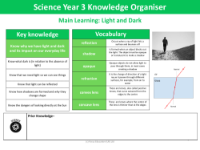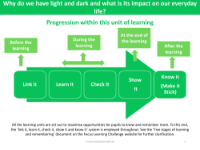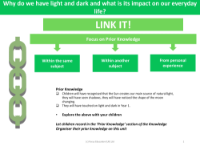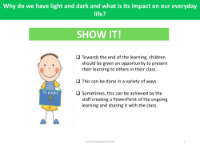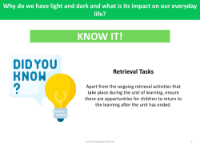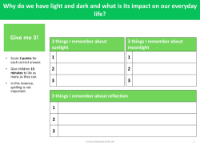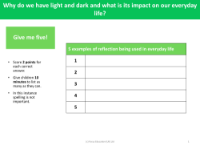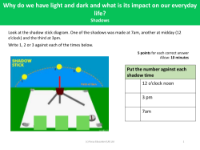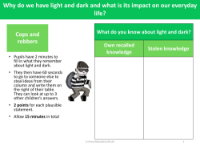Mini quiz - Reflections
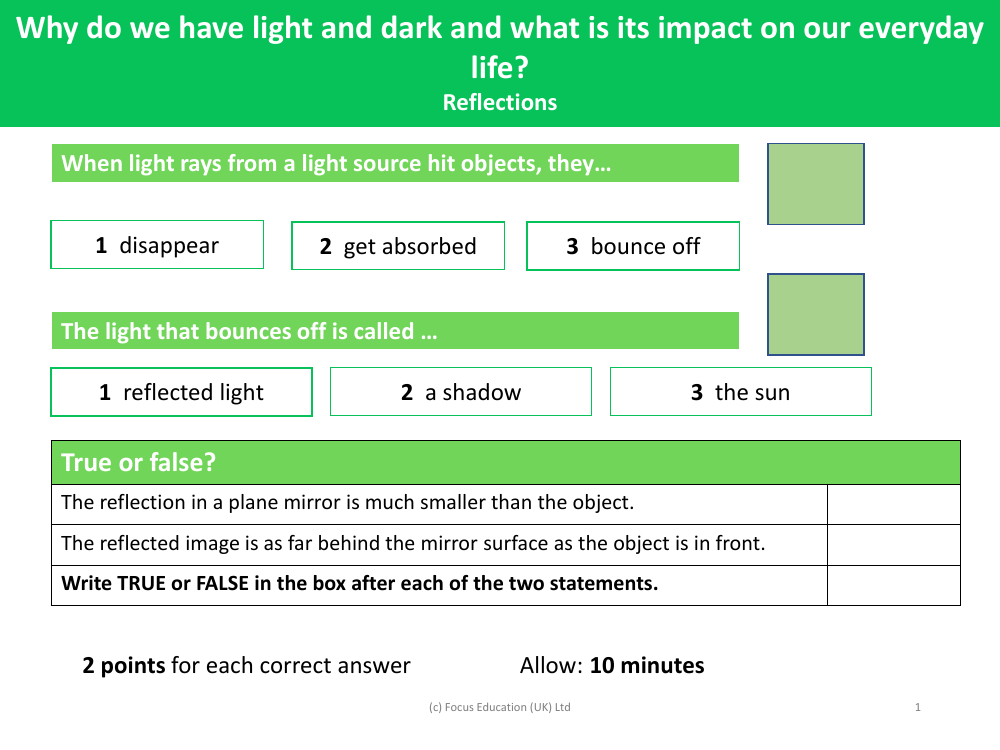
Science Resource Description
Understanding how light interacts with objects is fundamental to grasping the concept of reflections. When light rays from a light source encounter objects, they can either disappear, get absorbed, or bounce off. The correct answer to what happens when light hits objects is that it bounces off. The light that is deflected off the surface of an object is known as reflected light. This is a basic principle in the study of optics and is essential for many aspects of visual perception.
Considering the nature of reflections, especially in relation to plane mirrors, there are common misconceptions. The statement that the reflection in a plane mirror is much smaller than the object is false. In reality, the reflected image appears to be the same size as the object. The second statement, which posits that the reflected image is as far behind the mirror surface as the object is in front, is true. This phenomenon is due to the way light rays bounce off the mirror at angles that make the image appear the same distance behind the mirror as the object is in front of it. Light and darkness significantly impact our daily lives, influencing everything from the natural rhythm of day and night to the design and functionality of our living spaces and the way we perceive the world around us.

